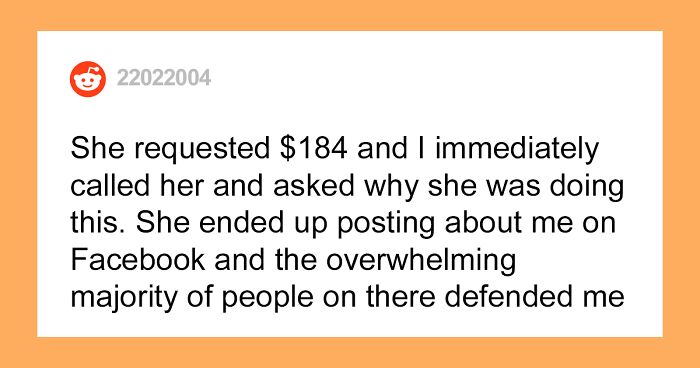
Person Can’t Decide If They’re A Jerk For Refusing To Pay Bills For A House They House-Sat, Asks The Internet
What are relatives for if not manipulating them into working for you for free? Oh, that’s right, money!
A few months ago, Reddit user 22022004 (such a poetic nickname) turned to the platform with a question: “Am I the jerk for refusing to pay bills for a house I house-sat a month ago?” they asked.
To help people answer it, they also provided a pretty detailed account of the entire situation. And the whole thing got weirder and weirder with every sentence—the house owner even demanded $184 for 22022004’s share of the utility bills.
Continue scrolling to read what happened and let us know in the comments your take on the family ordeal.
Image credits: Andrea Piacquadio (not the actual photo)
The PayPal request, the blocking on Facebook; you could say the house owner has been really passive-aggressive toward 22022004. And you’d be right.
Dr. Chloe Carmichael, a psychologist in Manhattan (NYC), who focuses on stress management, relationship issues, self-esteem, and coaching, told Bored Panda that passive-aggressive behaviors are veiled (rather than clear) things we do to get our needs met. “For example, instead of being direct and telling someone you would prefer to push a meeting to a later time, you simply agree to the time they propose but then show up late. Or instead of telling someone directly that you’re not fond of the restaurant they selected and ask to switch it, you go along with their choice but then act sulky about it the whole time,” Carmichael explained.
She said that people tend to resort to passive-aggressive behaviors when they don’t feel they have either the skills or the safety to express themselves more directly.
“Don’t be surprised if the person is unable or unwilling to acknowledge their passive-aggression. Sometimes passive-aggressive people don’t even really like to admit to themselves how they feel about things. They’re not even being fully honest with themselves so it’s very hard for them to be honest and direct with you,” Carmichael added.
She thinks a good way of dealing with such people could start by telling them that you value the relationship and would really like to know how they feel about things. “You could offer a couple of examples where it seems like they’re telling you everything’s fine but then behaving as if they’re upset, and you hope they can trust you to be direct with you about their true feelings,” Dr. Chloe said. “Let them know you welcome disagreement and even if they feel differently about something than you, you would rather understand it openly than hide it in the shadows.”
Resolving family conflicts often begins with defining what you can control and what you can’t. Dr. Kathleen Kelley Reardon, USC Marshall School professor and author of Comebacks at Work: Using Conversation to Master Confrontation, estimates that 75% of how people treat us is under our control. Because of this, she advocates taking a different approach if you want to experience new, more positive results with these types of conflicts in the future.
“Communication is like chess where every move one person makes influences the choices of the other,” says Reardon. “A good rule of thumb is to not say what you would normally say in response to any provocation. If you usually meet a challenge with a challenge, try asking a question instead. If you let someone go on and on and that leads to anger, link something you have to say to his or her topic and then change to another one.”
This doesn’t mean that 22022004 was in the wrong. But if you think you’re being blamed for something, instead of getting your back up, try saying, “There’s some truth to that” or “I hadn’t thought of it that way but I see your point.” Tweak what you normally do. Then you probably won’t just slip into conflict.
“Above all, don’t be predictable. When we’re predictable, those who want to argue can maneuver us into doing just that,” Reardon explains.
Here’s what people think about the situation
124Kviews
Share on FacebookThis is a "I lost my job and now we're on a tight budget...let's see who we can get to pay our bills for us." Her mum is probably trying to help her get her bills paid because the alternative would be the daughter moving back in with mum.....
Lost their job, can't afford their bills, but can afford to go visit their parents for a week essentially on vacation. I would have flipped my $hit.
Load More Replies...No good deed goes unpunished. How do people like this live with themselves?
We as humans have this remarkable ability to make nothing our fault.
Load More Replies...Whoa whoa whoa.... "You house-sit and pet-sit for me, and pay me". Uh, no. That's a job or a favor done for someone.
This is a "I lost my job and now we're on a tight budget...let's see who we can get to pay our bills for us." Her mum is probably trying to help her get her bills paid because the alternative would be the daughter moving back in with mum.....
Lost their job, can't afford their bills, but can afford to go visit their parents for a week essentially on vacation. I would have flipped my $hit.
Load More Replies...No good deed goes unpunished. How do people like this live with themselves?
We as humans have this remarkable ability to make nothing our fault.
Load More Replies...Whoa whoa whoa.... "You house-sit and pet-sit for me, and pay me". Uh, no. That's a job or a favor done for someone.


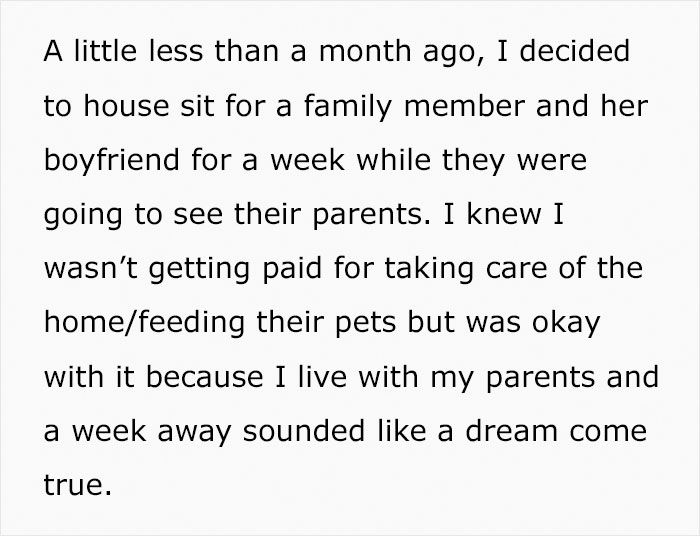
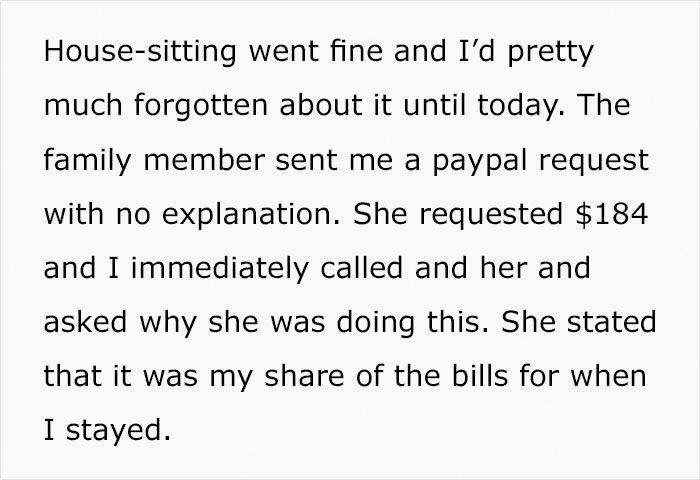
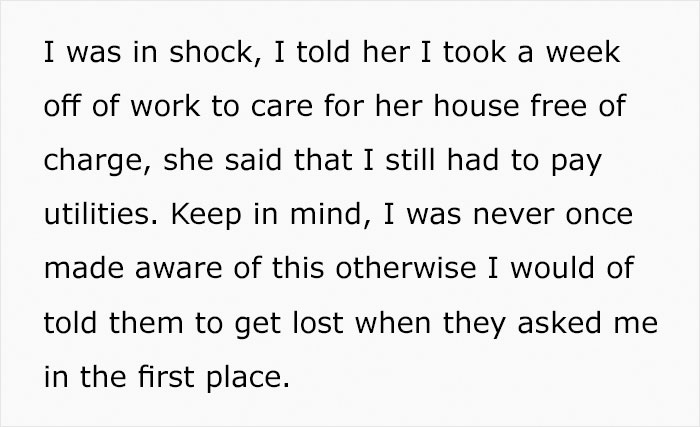

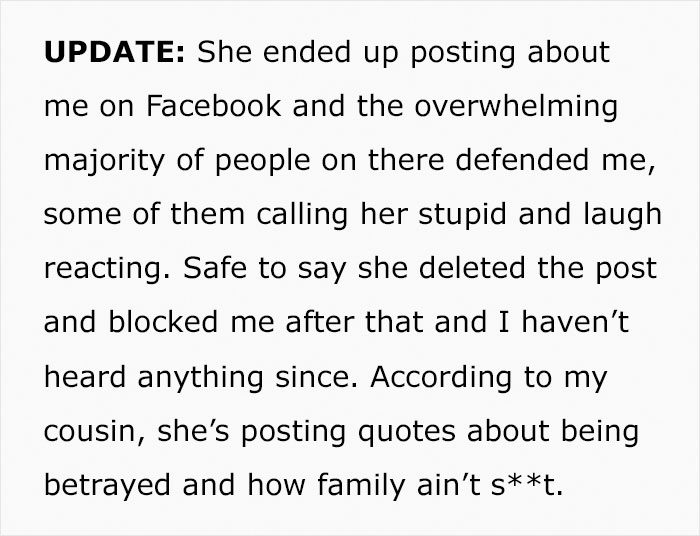















181
31